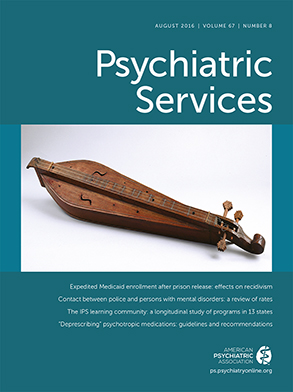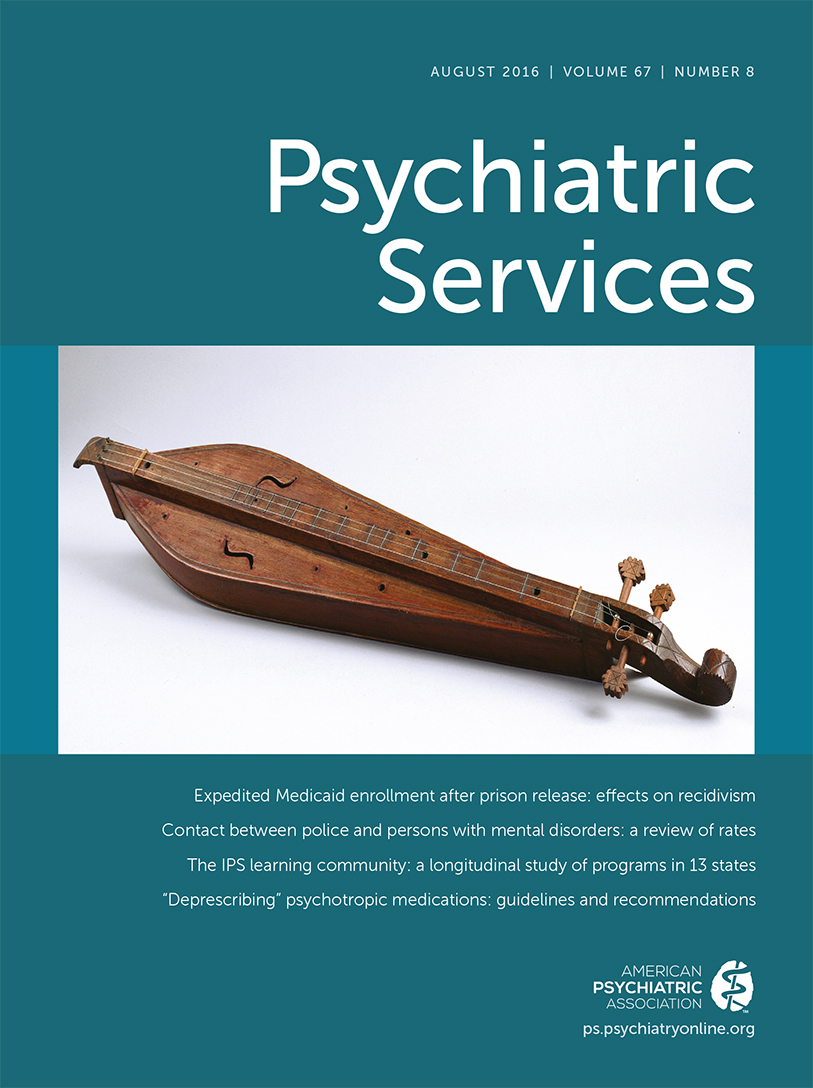TO THE EDITOR: Suicide is a significant public health problem and is the most frequently encountered emergency situation in mental health settings. Because of the ubiquity of suicide risk in psychiatric services and the paucity of training in this area, there have been calls to improve training in the assessment and management of suicide risk (
1). The most common strategy to increase provider knowledge about and attitudes toward addressing client suicide is conducting one-time continuing education training sessions. Unfortunately, an ever-growing body of implementation research has consistently documented that single-exposure training models are largely ineffective (
2). Although these workshop models can yield increases in provider knowledge immediately after training, they are limited in the extent to which they produce consistent or sustained changes in knowledge, attitudes, and behaviors over time (
3).
There is increasing recognition that provision of ongoing contact and posttraining support is essential to the successful implementation of new practices; however, this can easily increase the cost of training by 50% or more. Efficient methods for supporting trainees after initial training are needed. The overarching aim of the study reported here was to evaluate whether the addition of an e-mail reminder system to a traditional professional development model can enhance its effects and result in detectable, sustained changes in practitioner knowledge and attitudes.
Data on knowledge and attitudes were obtained prior to the training, immediately after the training, and at three-month follow-up beginning in May 2014. Participants included 83 clinicians recruited from an in-person suicide prevention training, designed to meet the requirements of new legislation in Washington State (
4). Participants were randomly assigned to a low-cost e-mail reminder condition that provided information related to suicide assessment and management or a no-reminder condition. Repeated-measures analysis of variance was used to examine the effect of posttraining reminders on suicide knowledge and attitudes.
From pre- to posttest, all practitioners demonstrated increases in suicide assessment knowledge and reported more favorable attitudes toward engaging with suicidal clients and using standard assessments of suicide risk. These gains were maintained at the three-month follow-up (for suicide assessment knowledge, F=10.43, df=3 and 72, p=.002; for attitudes, F=6.90, df=3 and 72, p=.001). No differences were found by reminder condition, suggesting that the presence or timing of e-mail reminders did not influence the extent to which clinicians benefited from the continued education program.
Recognizing the expense involved in introducing new practices in routine service contexts, implementation researchers and practitioners are increasingly asking, “How low can you go?” in regard to training and implementation support while still demonstrating a positive effect (
5). This study reflects one such effort in which participants who completed a one-day suicide workshop were randomly assigned to receive e-mail reminders. Results did not support the added benefit of reminders or differences by reminder timing. Future research may compare different levels of reminder intensity (such as reminder visibility and links to direct services), frequency (such as number of reminders provided), or duration (such as length of reminder period) to improve the impact of traditional “train and hope” approaches and drive discovery of more cost-effective implementation strategies.

